Psychology Books - The Body Keeps The Score by Bessel Van Der Kolk, M.D.
About the Breakthroughs Need Breakdowns Author
Ben Foodman is a licensed psychotherapist & performance specialist. He owns his private practice located in Charlotte North Carolina where he specializes in working with athletes to help them overcome mental blocks (the yips), PTSD, ADD / ADHD and achieve flow states through the techniques of Brainspotting & Neurofeedback. If you are interested in services, use the link here! Enjoy the article below!
Introduction: The Body Keeps The Score & Sport Psychology
As I began the process of writing my book Breakthroughs Need Breakdowns, one of the sources I frequently cited the most in my book was The Body Keeps The Score by Bessel Van Der Kolk. In my opinion, this is one of the greatest psychology books ever written. While there were many books that were written on trauma, Bessel Van Der Kolk was one of the first experts to present high quality information not only on the science of trauma, but on psychology itself. Just as Sigmund Freud laid the groundwork for future psychotherapists, Bessel Van Der Kolk will hold a place in history as one of the trail blazers in the field of mental health.
But what many people may not know (including Dr. Van Der Kolk), is that this book is also paving the way for how we rethink our approaches in the field of sport psychology. This is why his book was so influential on Breakthroughs Need Breakdowns. So for this issue of the Notes, I want to take time explaining to readers what The Body Keeps the Score is about, why it is important for athletes to read, and how it had a profound effect not only on me, but also on my writing and the way I approach my work with athletes. Let’s first dive into a summary about Dr. Van Der Kolk’s book The Body Keeps The Score.
Part I. What Is The Body Keeps The Score About?
Trauma is a fact of life. Veterans and their families deal with the painful aftermath of combat: one in five Americans has been molested; one in four grew up with alcoholics; one in three couples have engaged in physical violence. Dr. Bessel Van Der Kolk, one of the world’s foremost experts on trauma, has spent over three decades working with survivors. In The Body Keeps The Score, he uses recent scientific advances to show how trauma literally reshapes both body and brain, compromising sufferers’ capacities for pleasure, engagement, self-control, and trust.
He explores innovative treatments-from neurofeedback and meditation to sports, drama, and yoga-that offer new paths to recovery by activating the brain’s natural neuroplasticity. Based on Dr. Van Der Kolk’s own research and that of other leading specialists, The Body Keeps the Score exposes the tremendous power of our relationships both to hurt and to heal-and offers new hope for reclaiming lives. While this book has incredible application to individuals suffering from the after-effects of trauma, many people are surprised when I say this is a must-read for athlete populations. Let’s dive into why that is.
Part II. Why Does This Book Matter For Athletes?
Most sport psychology is rooted in an approach commonly known as Cognitive Behavioral Therapy (CBT). In summary, CBT is a psychotherapy approach that has been shown to help clients reframe negative thoughts into positive thoughts through more logic-based, positive psychology type approaches. While there is no doubt that this approach has helped people, the vast majority of sport psychologists apply this approach for most athlete populations. This approach however is not appropriate for most athletes let alone individuals who are suffering from the negative outcomes of trauma. The reason for this is because most sport psychologists (and unfortunately most psychotherapists) have a poor understanding of basic brain functions. Just as importantly, many sport psychologists and sports medicine professionals do not immediately connect the word trauma to negative sports experiences.
A perfect example that demonstrates this, is an excerpt from Dr. Van Der Kolk’s book: However, neuroscience research shows that very few psychological problems are the result of defects in understanding; most originate in pressures from deeper regions in the brain that drive our perception and attention. When the alarm bell of the emotional brain keeps signaling that you are in danger, no amount of insight will silence it. When our emotional and rational brains are in conflict, a tug of war ensues. This war is largely played out in the theater of visceral experience, your gut, your heart, your lungs will lead to both physical discomfort and psychological misery”. When we consider all of the stressors that athletes face such as sports injuries, coach abuse, public humiliations, using the word trauma to identify the problem becomes more acceptable.
Part III. The Connection To Breakthroughs Need Breakdowns
Breakthroughs Need Breakdowns is one of the first books to finally explain the connection to athletes, trauma and mental performance. Furthermore, this book also explains how athletes that incorporate trauma-informed psychotherapy into their mental training is a form of performance enhancement. Dr. Van Der Kolk’s writing and insight made it possible for me to be able to convey this message. Because mental blocks such as the Yips are representations of unprocessed trauma, athletes and sport psychologists need a foundational understanding of the neuropsychological mechanisms that cause this.
But Breakthroughs Need Breakdowns is not just a book about problems, it’s also a guide about HOW to overcome those problems and HOW to sustain that success. One of my favorite interventions that I discuss in my book which helps with the HOW, is Brainspotting. Brainspotting is a brain-based psychotherapy intervention that is a modified technique of Eye Movement Desensitization and Reprocessing (EMDR). Like the Body Keeps the Score, Breakthroughs Need Breakdowns provides details about how athletes can overcome these daunting mental blocks and get back to performing at an elite level!






























